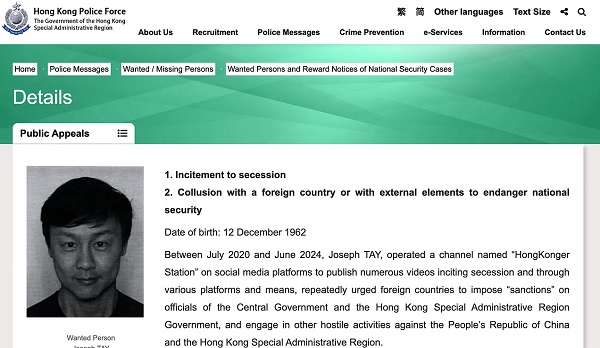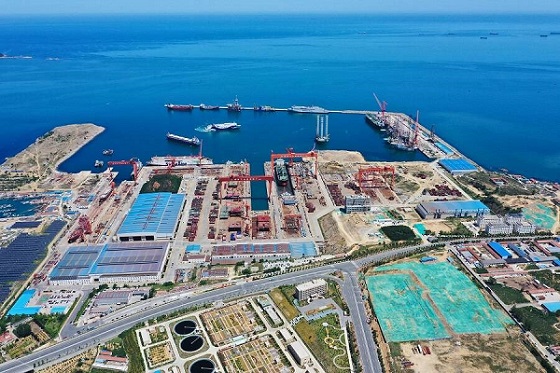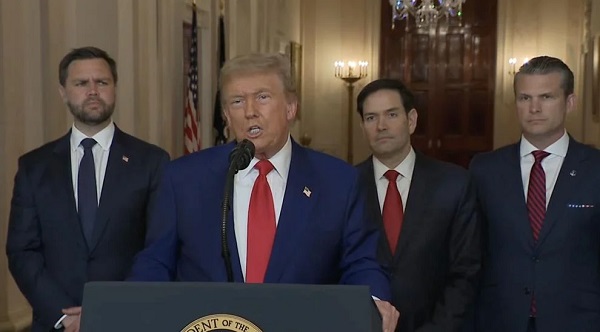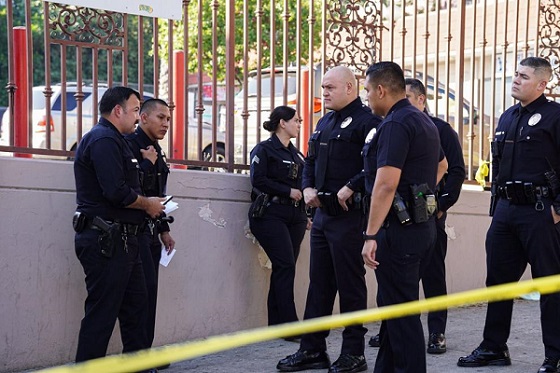espionage
Hong Kong Police Detain Relatives of Canadian Candidate Targeted by Beijing Election Interference

 Sam Cooper
Sam Cooper
Move follows aggressive PRC disinformation against Joe Tay, RCMP security warnings, and raises pressure on Prime Minister Mark Carney after White House meeting
In a striking escalation of Beijing’s interference in Canada’s Parliament and its global campaign to silence dissent, Hong Kong police have reportedly detained and questioned relatives of former Conservative election candidate Joe Tay—who was targeted by aggressive Chinese cyber and ground operations during the recent federal campaign, according to The Bureau’s intelligence sources.
The move to detain and question Tay’s cousin and the man’s wife in Hong Kong—reported by multiple sources, including Hong Kong Free Press—appears aimed at ramping up pressure on Liberal Prime Minister Mark Carney, whose campaign plausibly benefited from Beijing’s interference and the Liberal pledge to fight President Donald Trump’s global tariff regime.
Tay, who lost by roughly 5,000 votes to his Liberal opponent in Don Valley North, has yet to comment on the detentions. As The Bureau previously reported, the RCMP advised Tay to suspend in-person campaigning during the final week of the election due to credible threats tied to foreign interference.
The reported detentions occurred Thursday morning in the Fo Tan district of Hong Kong, where Tay’s relatives were taken to a police station for questioning. While Hong Kong police have not publicly confirmed the operation, the tactic aligns with the Chinese Communist Party’s growing use of family-based intimidation to suppress overseas dissent—a strategy documented across multiple countries by rights monitors and Western intelligence agencies.
Thursday’s detentions came just 48 hours after Carney’s closed-door meeting with U.S. President Donald Trump and Vice President J.D. Vance in Washington. Carney has not publicly commented on the content of the meeting, but according to a U.S. intelligence community source, the agenda likely included PRC political interference, trade, espionage, fentanyl trafficking, money laundering, and Chinese national security threats across North America.
Tay, 62, became a top target of Chinese interference networks during the 2025 campaign. Federal intelligence officials and The Bureau identified a coordinated foreign interference operation that promoted disinformation against Tay and other Conservative candidates across PRC-linked channels, particularly on WeChat, with the goal of depressing Chinese-Canadian voter turnout for the Conservative Party.
The SITE Task Force assessed that Tay was subject to a broader transnational repression campaign. PRC-linked accounts circulated narratives portraying Canada as a refuge for fugitives if Tay were elected—rhetoric that was echoed publicly by Liberal MP Paul Chiang, who was supported by Prime Minister Carney after those comments were publicized. Chiang’s campaign collapsed under international pressure after the RCMP announced it would review the matter.
That Beijing appears resolved to continue persecuting Tay and his family—even after his electoral defeat—points to a broader and deeper strategic objective behind this singular, confirmed case of interference. It also presents an early and consequential test for Prime Minister Carney, who campaigned on defending Canadian sovereignty while opposing Donald Trump’s tariff agenda. The timing of the escalation—detaining relatives of a defeated Canadian dissident just days after Carney’s May 6 White House meeting—suggests the PRC may be actively probing Ottawa’s resolve under new leadership.
The Bureau has extensively documented this repressive strategy. On April 10, 2025, The Bureau confirmed that Hong Kong activist Frances Hui’s parents were detained by Hong Kong national security police, following Hui’s testimony before Canada’s Parliament. Hui, now based in Washington, had previously revealed she was allegedly stalked and threatened by a suspected PRC agent.
Tay’s case fits an increasingly global pattern. The Bureau has learned that a report reviewed by Toronto police during the campaign involved a suspected stalking threat against members of Tay’s team. And now, even after democratic outcomes, the Chinese state appears determined to punish political critics through surveillance, coercion, and intimidation directed at family members—sending a clear message to diaspora communities and foreign governments alike.
The formal charges against Tay were issued by Hong Kong police in December 2024. According to official documents reviewed by The Bureau, Tay—born 12 December 1962—was charged with:
- Incitement to secession
- Collusion with a foreign country or with external elements to endanger national security
Authorities allege that between July 2020 and June 2024, Tay operated a platform called HongKonger Station, through which he published “numerous videos inciting secession” and “repeatedly urged foreign countries to impose sanctions” on officials in Beijing and Hong Kong.
The SITE Task Force confirmed that these charges were disseminated and amplified by Chinese intelligence-linked networks during Canada’s 2025 campaign, as part of a broader information warfare effort to delegitimize Tay and portray his candidacy as a national security threat to China.
At the time the charges were announced, Canada’s Foreign Affairs Minister Mélanie Joly condemned them, warning that Beijing’s extraterritorial use of its National Security Law undermined international norms and democratic principles. Since Tay’s defeat—and her party’s electoral victory—Joly has not made any further public comment.
The Bureau will seek comment from Carney and his government today and update this story.
The Bureau is a reader-supported publication.
To receive new posts and support my work, consider becoming a free or paid subscriber.
Invite your friends and earn rewards
Business
Ottawa Slams Eby Government Over Chinese Shipyard Deal, Citing Security and Sovereignty Risks

 Sam Cooper
Sam Cooper
Western security analysts have warned that China’s commercial shipyards routinely serve dual-use purposes, supporting both civilian contracts and the expansion of the People’s Liberation Army Navy. A 2024 report by the Center for Strategic and International Studies warned that foreign customers contracting with Chinese state-owned shipbuilders may be inadvertently “subsidizing the growth of China’s naval power.”
Stung by a political firestorm over his provincial government’s decision to hand a massive shipbuilding contract to Chinese suppliers that critics say could bolster Xi Jinping’s military capabilities and undermine Canadian national security, B.C. Premier David Eby late Friday night reluctantly released a searing letter from federal Transport Minister Chrystia Freeland.
The letter, dated June 16 and addressed to B.C. Transportation Minister Mike Farnworth, expresses Freeland’s “consternation and disappointment” over BC Ferries’ decision to select China Merchants Industry Weihai—a subsidiary of a state-owned Chinese conglomerate closely tied to Beijing’s military-civil fusion strategy and Belt and Road Initiative—to build four new major vessels.
“I am dismayed that BC Ferries would select a Chinese state-owned shipyard to build new ferries in the current geopolitical context,” Freeland wrote. She demanded that Farnworth “verify and confirm with utmost certainty that no federal funding will be diverted to support the acquisition of these new ferries.”
Freeland emphasized that the Government of Canada has provided “long-standing financial support” to British Columbia’s ferry system, including “approximately $37.8 million” annually under a 1977 agreement, $308 million to cover pandemic-related operating losses, and “a $75-million loan to BC Ferries to help purchase four net-zero emission ferries.”
“Given the value of the contract and the level of taxpayer funding that has been provided to support BC Ferries’ operations,” Freeland wrote, “I am surprised that BC Ferries does not appear to have been mandated to require an appropriate level of Canadian content in the procurement or the involvement of the Canadian marine industry.”
The letter, which had been withheld by Eby’s government for nearly a week, was quietly released to the public just before midnight Eastern Time Friday—only after repeated demands in Parliament by Conservative MP Dan Albas, who posted on social media: “People deserve that transparency.”
The political backlash mounted swiftly following Eby’s disclosure of the deal with China. BC Conservative leader John Rustad accused Eby and BC Ferries of failing to account for the broader strategic risks of contracting with a Chinese state-owned entity during a period of rising global tensions.
“There’s lots of rhetoric going back and forth between the United States and China, friction with Taiwan,” Rustad told Postmedia. “Who knows what may happen? Hopefully nothing by 2029 to 2031, which is when these ships are going to start to be constructed and delivered.”
It’s not a far-fetched concern. During the COVID-19 pandemic, Prime Minister Justin Trudeau’s government entered into a vaccine partnership with CanSino Biologics—a company with links to China’s People’s Liberation Army—only for Beijing to block shipment of the vaccine, abruptly collapsing the deal.
In her June 16 letter, Freeland warned the B.C. government that “ongoing concerns regarding threats to security, including cybersecurity, from China” required urgent attention. She asked for clear commitments that BC Ferries had conducted “a robust risk assessment” and demanded to be informed of the steps being taken to “reduce the risks of outside influence or control from cybersecurity vulnerabilities,” and to “mitigate the risks that vessel maintenance and spare parts may pose.”
Freeland further linked the deal to Beijing’s retaliatory economic measures, writing, “China has imposed unjustified tariffs on Canada, including 100% tariffs on canola oil, meal, and pea imports, and a 25% duty on Canadian aquatic products and pork. These tariffs have affected about 36% of Canadian agriculture businesses and are directly impacting the livelihood of Canadians.”
China Merchants Industry Weihai is a subsidiary of China Merchants Group, a massive state-owned enterprise that has played a central role in advancing Beijing’s Belt and Road Initiative since 2013. The conglomerate operates ports and shipyards across Asia, Europe, and Africa—including strategic holdings in Greece, Lithuania, Nigeria, and Djibouti—and is a central player in the Chinese Communist Party’s military-civil fusion strategy.
Western security analysts have warned that China’s commercial shipyards routinely serve dual-use purposes, supporting both civilian contracts and the expansion of the People’s Liberation Army Navy. A 2024 report by the Center for Strategic and International Studies warned that foreign customers contracting with Chinese state-owned shipbuilders may be inadvertently “subsidizing the growth of China’s naval power.”
Valued in the hundreds of millions, the contract will see the Chinese yard begin delivering the vessels between 2029 and 2031.
Rustad further told Postmedia that the province’s reliance on foreign state-controlled suppliers for strategic transportation infrastructure was “not just irresponsible, it’s a betrayal of Canadian workers and economic independence.”
The BC Federation of Labour has also raised concerns about the use of public money to finance offshore contracts that benefit authoritarian regimes, and Canadian maritime industry groups have renewed calls for a federal policy mandating domestic content in major shipbuilding procurements.
First established in 2016 under then-premier Christy Clark through a Memorandum of Understanding with China’s Guangdong province, the B.C.–Belt and Road Initiative pact laid the groundwork for collaboration on maritime trade, infrastructure, and shipbuilding with Chinese state-owned firms. Those ties expanded under Premier John Horgan, whose NDP government promoted deeper bilateral economic relations. The BC Ferries procurement—while legally made by an independent board—proceeded within a framework Premier Eby’s administration continues to support.
New research reported by The Bureau and published by the Washington-based Jamestown Foundation adds a sharp dimension to these concerns. The Foundation warns that criminal and political networks promoting Xi Jinping’s Belt and Road Initiative have been linked to Chinese transnational organized crime and covert Communist Party influence operations.
According to the report, a global syndicate known as Hongmen—also referred to as the Chinese Freemasons—has been deeply embedded in both criminal activity and Beijing’s “united front” operations, which support the CCP’s geopolitical aims including the annexation of Taiwan and BRI expansion.
“The organization’s sprawling structure includes affiliated offices across the globe from Hong Kong and Nairobi to Toronto and Madrid,” the report states. “The Chinese Communist Party has turned a blind eye as Hongmen ventures have expanded across One Belt One Road countries, in part because these organizations serve the purposes of united front work.”
The Jamestown Foundation’s findings echo longstanding concerns within Canada’s intelligence community regarding BRI-linked actors and opaque Chinese political networks operating in the country—especially in British Columbia, which remains the only jurisdiction in North America to have signed a formal Belt and Road agreement with Beijing.
Premier Eby has not apologized for the decision. He told reporters last week that the province would not interfere with BC Ferries’ independent board, which selected the Chinese yard based on cost and delivery timelines.
Whether mounting federal pressure and scrutiny from security experts will force a review remains an open question.
The Bureau is a reader-supported publication.
To receive new posts and support my work, consider becoming a free or paid subscriber.
Invite your friends and earn rewards
espionage
FBI Buried ‘Warning’ Intel on CCP Plot to Elect Biden Using TikTok, Fake IDs, CCP Sympathizers and PRC Students—Grassley Probes Withdrawal

Intel warned of tens of thousands of illegal votes via fake IDs tied to CCP-linked students; FBI shut it down days after Wray denied foreign interference.
Senate Judiciary Committee Chairman Chuck Grassley announced that his panel will launch a formal investigation into why the FBI in September 2020 ordered the withdrawal and destruction of an explosive “raw intelligence” report alleging that Beijing harvested American private identity data from millions of TikTok accounts, enabling Chinese intelligence to manufacture fraudulent driver’s licenses that “would allow tens of thousands of Chinese students” to cast mail-in ballots in favor of Joe Biden during the 2020 presidential election.
Grassley confirmed receipt of the now-declassified document and said it raises “serious national‑security concerns that need to be fully investigated by the FBI.” The Senate Judiciary Committee is now requesting internal communications, a formal justification for the FBI’s “substantive recall” of the document, and a review of the FBI’s compliance with federal intelligence record-keeping laws.
The pre-election document does not assert that fraudulent ballots were cast, and explicitly warns that the information should not be actioned without FBI coordination. But the scale and specificity of the allegations—now under Senate scrutiny—have dramatically reignited questions over how U.S. intelligence agencies handled politically sensitive reports implicating the Chinese Communist Party in election interference.
According to Fox News, the heavily redacted FBI intelligence now under investigation has declassified sections that reveal the potential of a Beijing-directed voter fraud campaign designed to leverage Chinese international students, fraudulent ID records mailed into U.S. states, and populations sympathetic to the Chinese Communist Party living in America, all in efforts to elect Joe Biden over Donald Trump.
The Bureau is a reader-supported publication.
To receive new posts and support my work, consider becoming a free or paid subscriber.
One section of the report cited by Fox News states the subject as: “[REDACTED] Chinese Government Production and Export of Fraudulent US Drivers Licenses to Chinese Sympathizers in the United States, in Order to Create Tens of Thousands of Fraudulent Mail-In Votes for US Presidential Candidate Joe Biden, in late August 2020.”
The FBI’s source allegedly obtained the information from an identified sub-source, who claimed they obtained the information from unidentified PRC government officials. One of the report’s core claims is that in late August 2020, the Chinese government had produced a large amount of fraudulent United States drivers licenses that were secretly exported to the United States.
The memo states: “The fraudulent drivers licenses would allow tens of thousands of Chinese students and immigrants sympathetic to the Chinese Communist Party to vote for US Presidential Candidate USPER Joe ((Biden)), despite not being eligible to vote in the United States.”
As reported yesterday by The Bureau, the FBI’s report aligns with seizures from CBP in Chicago, where officers at the International Mail Facility intercepted nearly 20,000 counterfeit U.S. driver’s licenses in the first half of 2020—the vast majority shipped from China and Hong Kong. The licenses were often destined for college-aged recipients, with many containing real ID numbers and scannable barcodes, raising alarms that they could be used for fraudulent identification.
The FBI election interference report—allegedly pulled from circulation by then-Director Christopher Wray—contained consequential assertions about TikTok, which has been identified in subsequent U.S. intelligence assessments as a Chinese information warfare and election interference asset.
The 2020 memo stated: “China had collected private US user data from millions of TikTok accounts, to include name, ID and address, which would allow the Chinese government to use real US persons’ information to create the fraudulent drivers license.” It added that the fraudulent drivers licenses were to include true ID number and true address of U.S. citizens, making them difficult to detect, and that China planned to use the fraudulent drivers licenses to account for tens of thousands of mail-in votes.
Beijing has already succeeded in directing the social video app TikTok to “censor content outside of China,” according to a classified Department of Justice brief filed last summer in a case that casts one of the world’s most popular media platforms as a Chinese Communist Party weapon poised to attack Americans during an election or geopolitical crisis in the same manner as Chinese cyber-spies and hackers that are currently buried within North American critical infrastructure.
Yet the FBI “warning” document also reveals internal doubts. According to Fox News, FBI notations flagged gaps in the TikTok claim, stating that “a person’s address information was not a valid field when creating a TikTok account. It was unspecified how China would attain US address data from the application.” Another annotation stated that the source is available for re-contact.
The following page of the intelligence report reportedly included a directive for “SUBSTANTIVE RECALL,” dated September 25, 2020—one day after FBI Director Wray told Congress that the Bureau had seen “no coordinated voter fraud” ahead of the 2020 election. The FBI’s internal context note acknowledged that the source received the information from a sub-source who cited anonymous PRC officials. The warning section of the document repeated that the allegations were part of “an information report, not finally evaluated intelligence.” The document also stated: “Recipients should also ensure that any citation of the information in finished intelligence products draws on the SUBSTANTIVE RECALL of this report rather than the previous version.”
The document reportedly instructed all recipients to destroy all copies of the original report and remove the original report from all computer holdings, and to cite only the recall order in any future analysis. That sequence—first, a claim implicating China in voter manipulation; next, immediate questioning of the methodology; and finally, a full internal shutdown—has now become the focus of a politically and institutionally charged congressional investigation.
The remainder of the document is heavily redacted, Fox reported, and more information is being requested from the FBI as part of the Senate’s investigation. “Grassley is requesting additional documentation from the FBI to verify the production and is urging the FBI to do its due diligence to investigate why the document was recalled, who recalled it and inform the American people of its findings,” a Grassley spokesperson reportedly told Fox News.
The FBI memo’s resurfacing also casts renewed light on a broader internal struggle inside the U.S. intelligence community in 2020: whether to formally acknowledge China’s intent or actions in shaping the presidential election. At the time, DNI John Ratcliffe and a small group of dissenting officials reportedly suggested that China had taken covert steps to influence the race—particularly in opposition to Donald Trump—and that this was being downplayed or scrubbed from official analyses for political reasons. Ratcliffe’s January 7, 2021 memo to Congress directly accused senior intelligence officers of pressuring analysts to downplay or suppress these findings, especially at the CIA and ODNI. He wrote that the 2021 Intelligence Community Assessment (ICA) failed to fully and accurately reflect the scope of the Chinese government’s efforts to influence the 2020 U.S. federal elections.
According to Ratcliffe, internal IC investigations found that China analysts appeared reluctant to assess Chinese actions as interference because they tend to disagree with the administration’s policies. The whistleblower report from ODNI’s own Analytic Ombudsman warned of undue pressure on analysts offering alternative views and concluded that politicization existed from both above and below.
One of the officials who refused to back down was Christopher Porter, then the National Intelligence Officer for Cyber, who claims that his minority assessment on Chinese influence was effectively buried. Porter alleged in late 2024 that he was harassed and forced out of government after submitting his dissent.
In a series of posts on X applauding the decision to release the report to Grassley, Porter wrote that he was upbraided four years ago for raising similar warnings. He argued that the failure of U.S. intelligence to confront China’s espionage—particularly its hacking of critical infrastructure and telecommunications networks—would only embolden the regime. “We are now reaping the harvest of that bad decision,” he added. In another message, Porter emphasized that “politics has to stop at the water’s edge,” urging national leaders to call out Chinese influence operations “at the highest level.”
Porter went further, criticizing U.S. allies like the United Kingdom for dragging their feet on national security decisions regarding China’s penetration of telecommunications. Canada, under Liberal Prime Minister Justin Trudeau, took about three years to decide on banning Huawei. Critics such as Porter attribute such reluctance to economic motives overriding sober analysis.
Today, with the FBI’s suppressed memo in the hands of the Senate Judiciary Committee, Porter’s and Ratcliffe’s minority views are no longer isolated warnings. They are now part of a growing body of evidence suggesting that political sensitivity—especially over which party Beijing may prefer—might have played a role in sidelining national security intelligence during one of the most consequential U.S. elections in history.
The Bureau is a reader-supported publication.
To receive new posts and support my work, consider becoming a free or paid subscriber.
Invite your friends and earn rewards
-

 conflict18 hours ago
conflict18 hours agoPete Hegseth says adversaries should take Trump administration seriously
-

 conflict1 day ago
conflict1 day agoTrump urges Iran to pursue peace, warns of future strikes
-

 Energy19 hours ago
Energy19 hours agoEnergy Policies Based on Reality, Not Ideology, are Needed to Attract Canadian ‘Superpower’ Level Investment – Ron Wallace
-

 Health2 days ago
Health2 days agoKennedy sets a higher bar for pharmaceuticals: This is What Modernization Should Look Like
-

 conflict18 hours ago
conflict18 hours agoU.S. cities on high alert after U.S. bombs Iran
-

 Automotive2 days ago
Automotive2 days agoCarney’s exercise in stupidity
-

 Business2 days ago
Business2 days agoOttawa Slams Eby Government Over Chinese Shipyard Deal, Citing Security and Sovereignty Risks
-

 Business2 days ago
Business2 days agoOutrageous government spending: Canadians losing over 1 billion a week to interest payments








